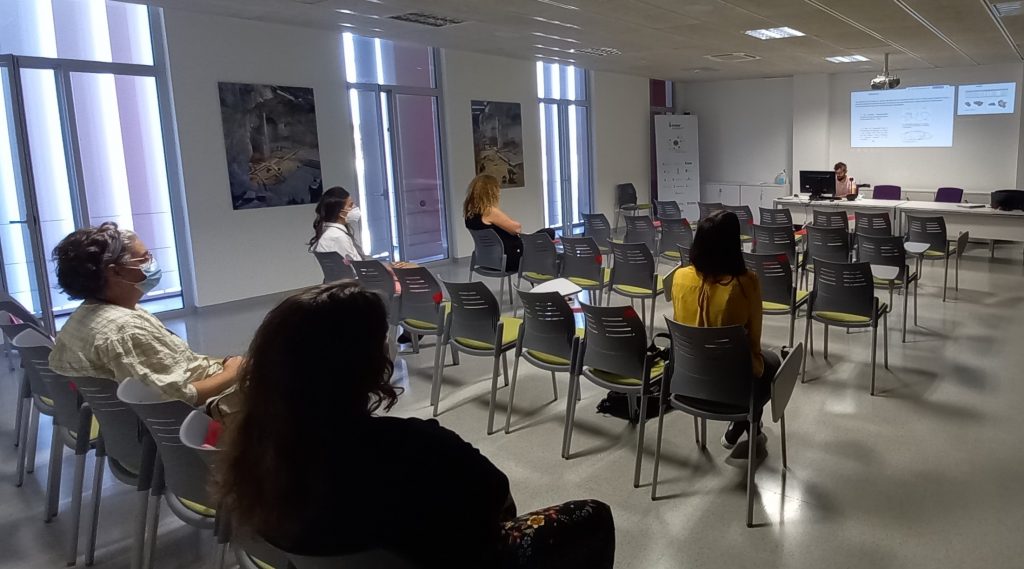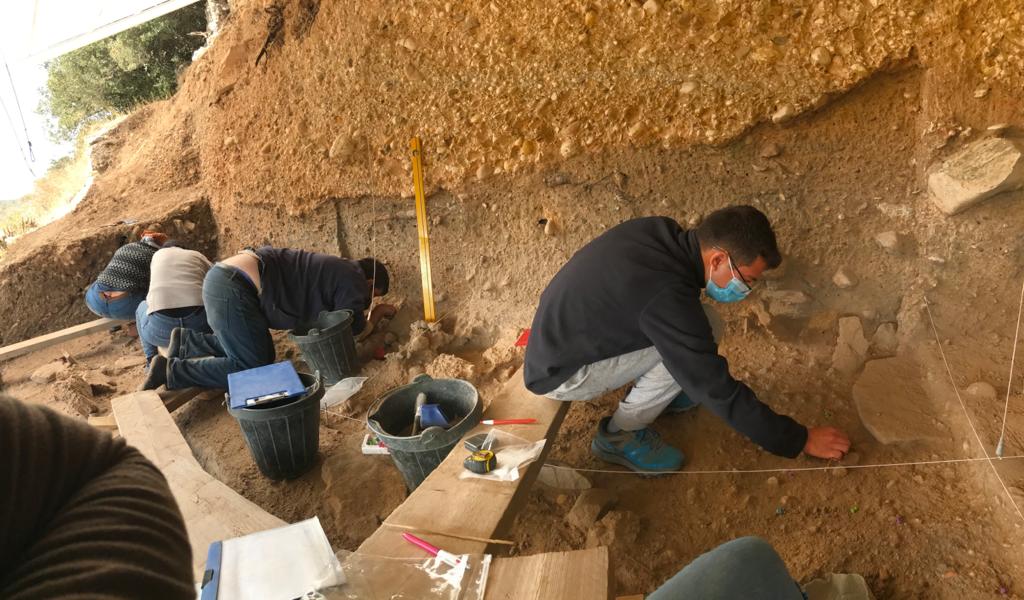01/10/2021
Presentation of 10 new master theses of the Erasmus Mundus in Quaternary Archaeology and Human Evolution
Since 2006, fifteen promotions of master students have been graduated and more than 200 research works have been completed

Since 2006, fifteen promotions of master students have been graduated and more than 200 research works have been completed
A total of 23 students have presented their final master research work of the master Erasmus Mundus in Quaternary Archaeology and Human Evolution, 10 of these students started their studies at Rovira i Virgili University (URV), in Tarragona (Spain). During September 27th and 28th students from Spain, Italy, France and Portugal have defended their works in a joining season using virtual platform. Some of the URV students defended their works at Ferrara University and also from IPHES (Institut Català de Paleoecologia Humana i Evolució Social) by videoconference room or even connecting from elsewhere using virtual platforms. Also, some of the jury composed by representatives of the Erasmus Mundus consortium has participated online.
The Erasmus Mundus Master in Quaternary Archaeology and Human Evolution is offered in partnership with other European institutions, particularly the University of Ferrara, (Italy), the National Museum of Natural History (Paris, France) and the Tomar Polytechnic Institute (in Portugal).

Since 2006, fifteen promotions of master students have been graduated and more than 200 research works have been completed so far. Many of them are based on different projects in which the IPHES participates, in line with the center of uniting teaching with research, field work and socializing.
Indeed, the Erasmus Mundus Master in Quaternary Archaeology and Human Evolution began to teach at the URV in 2004-2005 academic year, thanks to the research carried out in the IPHES, participating in major global projects in its field. The Erasmus Mundus program represents an important recognition of the quality and singularity to attract students and represents a key on the internationalization objectives of the URV.
URV students and Master Thesis titles:
1) ALDEA MOREIRA, XES
Gestión tecnológica de la cuarcita durante el Paleolítico medio y superior en Cova Eirós (Triacastela, España). Advisors: XP Rodríguez, Arturo Lombera Hermida
2) ARJANTO, DAMA QORIY
Late Pleistocene Environmental Reconstruction of North-eastern Iberia through the small mammal assemblages: The Case of Cudó Cave (Mont-ral, Tarragona). Advisors: Mónica Fernández-García, Juan Manuel López García
3) FARKOUCH, MOURAD
Technological behavior during the MSA in Eastern Morocco: Sahb El Ghar 1 & 2.1 open-air sites. Advisors: Gema Chacón, Hassan Aouraghe, Juan Ignacio Morales
4) MARQUETA MADRID, MARIO
Estudio tafonómico del conjunto avifaunístico del nivel TE9-d de Sima del Elefante (Atapuerca, Burgos). Advisors: Rosa Huguet
5) MONTELONGO VIDAL, MARCO
Remontando nódulos y aislando impactos: análisis estadístico y morfotécnico de la talla de bifaces realizada por talladores expertos a través de sus secuencias de remontajes. Advisors: Marina Mosquera
6) MONTIEL HERNÁNDEZ, GUSTAVO DANIEL
Revisiting Ndutu. A new virtual reconstruction of the Ndutu cranium. Advisors: Carlos Lorenzo, Florent Detroit
7) OROZCO SAUMELL, MARTA
Dogs from Augusta Emerita: The Stable Isotopes Input for Diet and Status Evolution into Human Society. Advisors: Carlos Tornero, Ana Elisabete Pires, Cleia Detry
8) RAMÍREZ GARCÍA, LUCÍA
Odontometría y análisis del desgaste dental para la estimación de la edad en individuos infantiles y juveniles: Comparación entre metodologías. Advisors: Marina Lozano
9) SMAIL, REBIHA
Sex Determination, Morphological and Metrical parameters of adult human mandible from El Mirador Cave and Cova de la Guineu sites. Advisors: Marina Lozano
10) SOSSA RÍOS, SANTIAGO
Comportamiento humano en tiempo y espacio. Disección de palimpsestos, captación de recursos líticos y gestión tecnológica en las unidades IV y V del Abric del Pastor (Alcoi, Alicante). Advisors: Manuel Vaquero, Cristo Manuel Hernández Gómez
More news about: Catalan Institute of Human Paleoecology and Social Evolution (IPHES)
